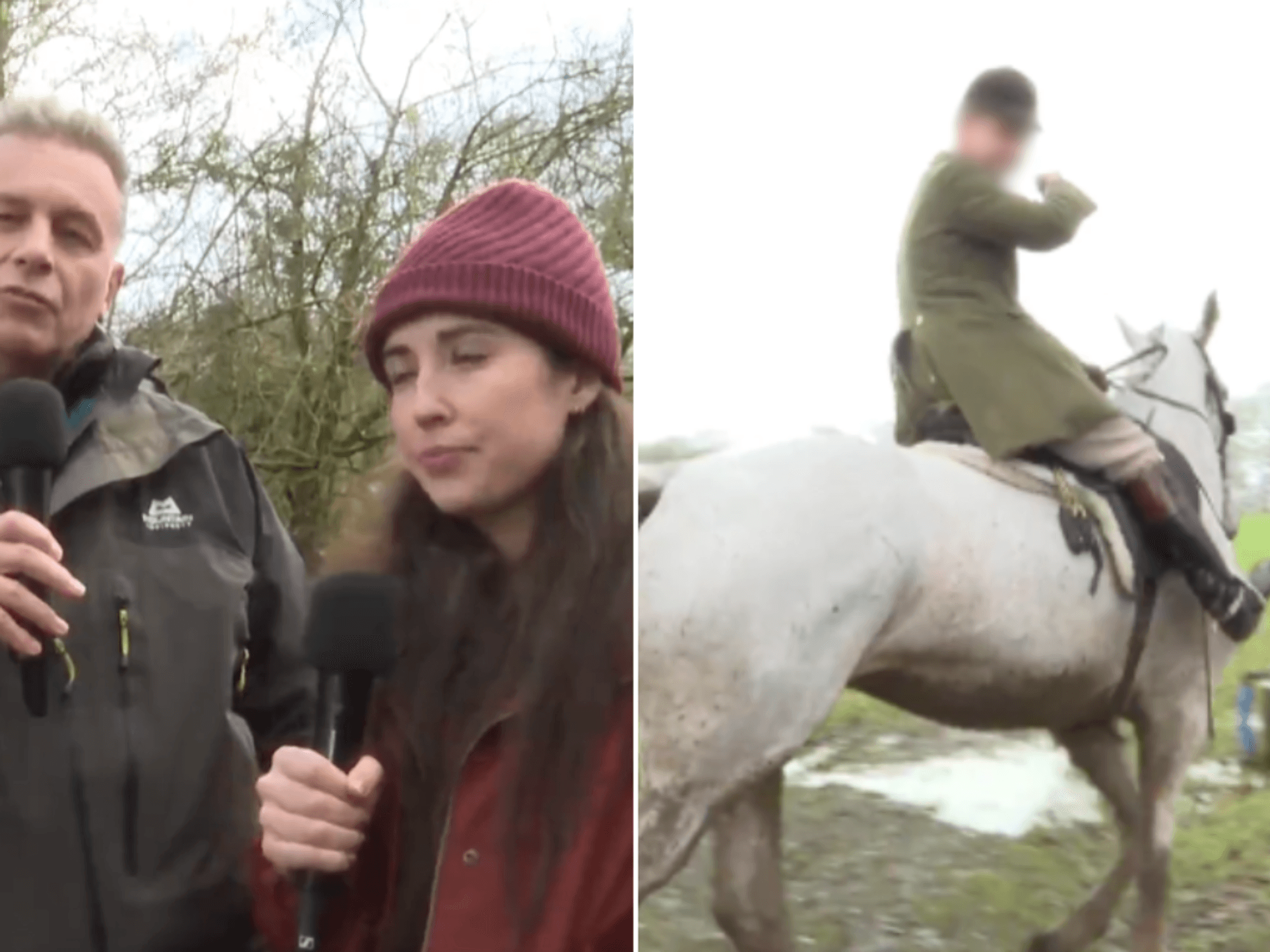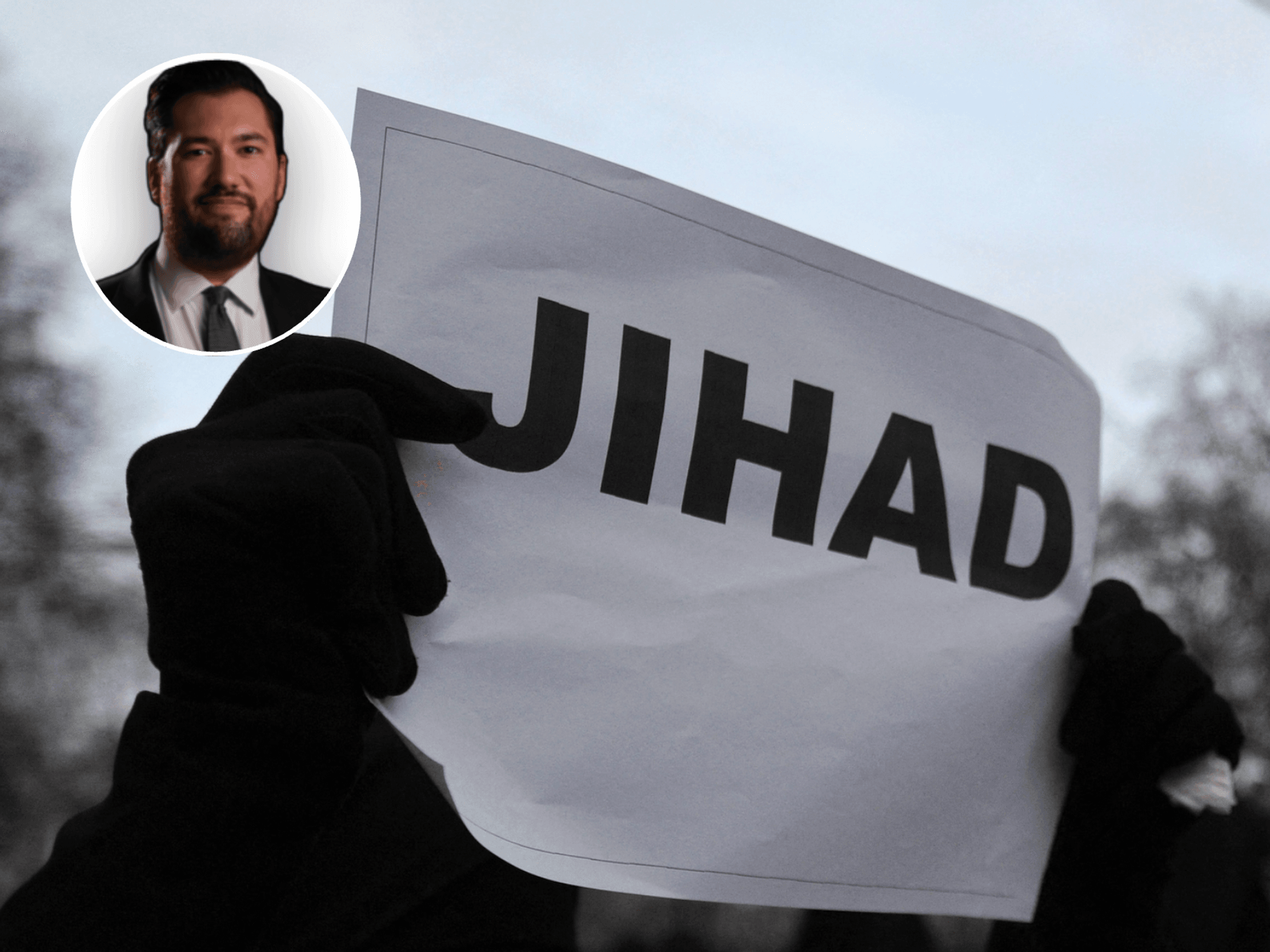Poppy sellers 'too nervous' to wear Remembrance icon amid fears of backlash
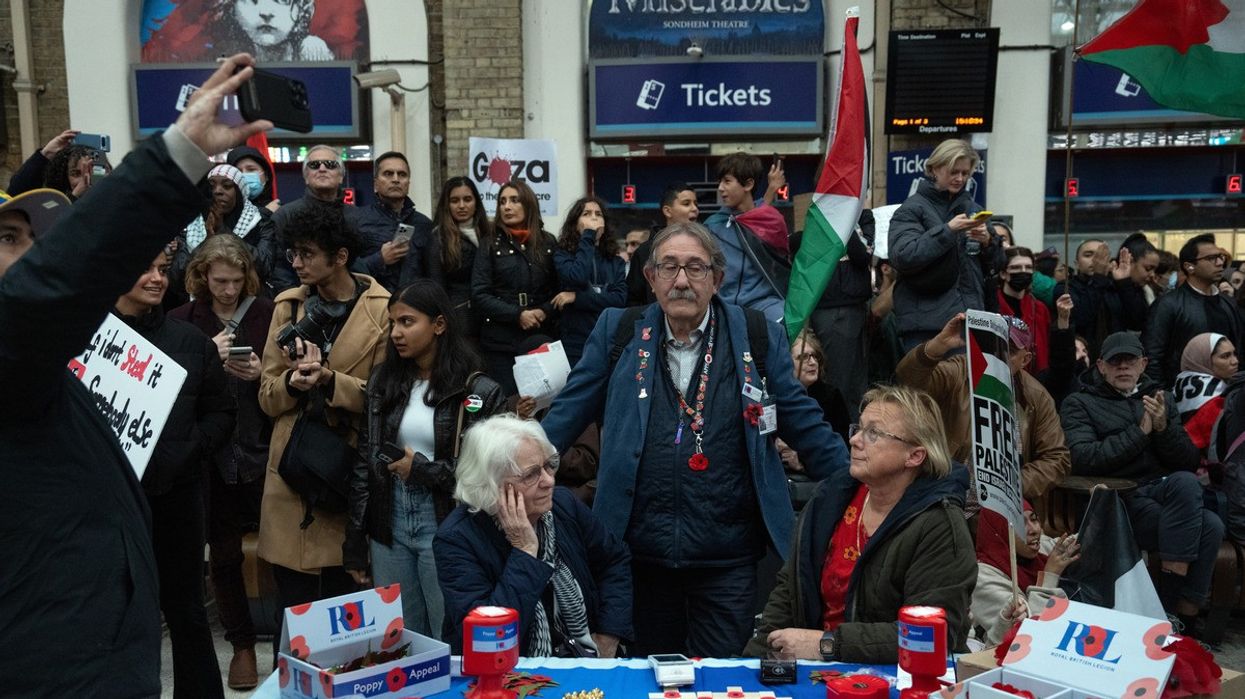
Royal British Legion poppy sellers look on as they are surrounded by people staging a sit-in inside Charing Cross train station during a pro-Palestinian demonstration
|GETTY

Staff at some of London's largest train stations reported less poppy volunteers have been selling Remembrance Day items amid growing tensions
Don't Miss
Most Read
Latest
Poppy sellers are “too nervous” to wear the iconic emblem to mark Remembrance Day amid fears of a backlash, a Royal British Legion supporter has claimed.
Footage circulating on social media showed poppy sellers have been among those intimated by a baying mob of pro-Palestine protesters in recent weeks.
Scottish veteran Jim Henderson, 78, alleged he was kicked and punched at Edinburgh Waverley on Saturday.
A volunteer selling poppies in a Tesco supermarket in Northern Ireland was filmed being verbally abused by a woman who asked repeatedly who gave her permission to sell “badges for murderers”.
WATCH NOW: Henry Boulton addresses protests scheduled for Remembrance Day
Photographs from Charing Cross Station showed poppy sellers being surrounded by pro-Palestine activists, with Minister Johnny Mercer responding by saying: “The saddest thing my generation of veterans ever say to me is that they struggle to recognise the country they wore the uniform for.”
A supporter of the Royal British Legion suggested the tense atmosphere was leaving many fearful of wearing the Remembrance Day icon.
They said: “I'm genuinely too scared to wear a poppy around London this year, no one is around to protect you, defend yourself and either end up getting assault charges or beaten up.”
Staff at Victoria and Euston reportedly confirmed poppy sellers were not distributing the Remembrance Day icons at the major London train stations as much as in previous years.
LATEST DEVELOPMENTS: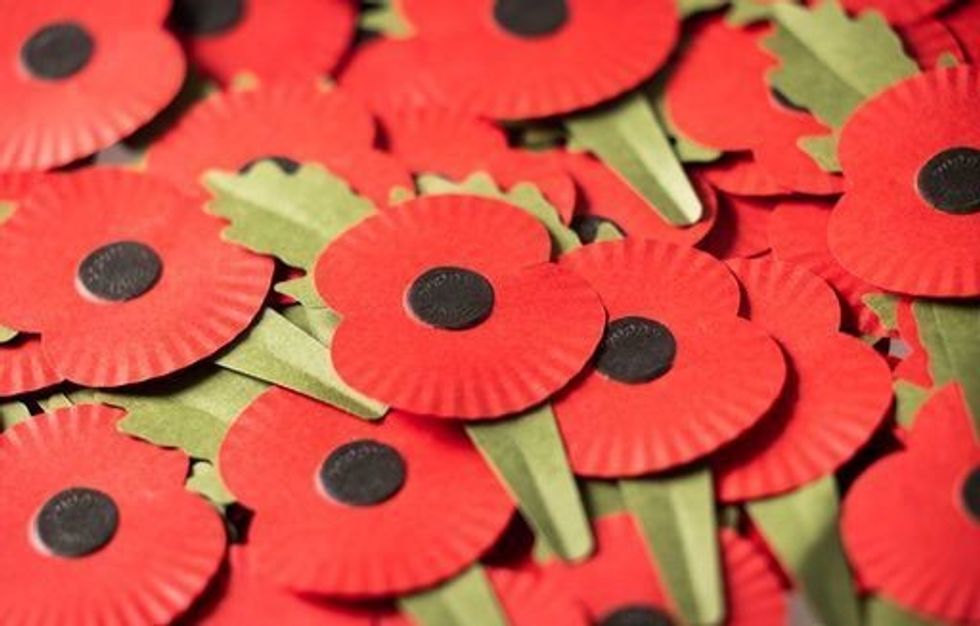
A collection of poppies
| PAOther train stations across the UK have witnessed similar problems.
Conservative MP Michael Fabricant argued people were “too nervous” to wear a poppy.
“I have been wearing my poppy with pride,” the Lichfield MP told The Daily Mail.
“Police and the general public should all wear poppies as in previous years to show solidarity with the normal, decent people in the UK.
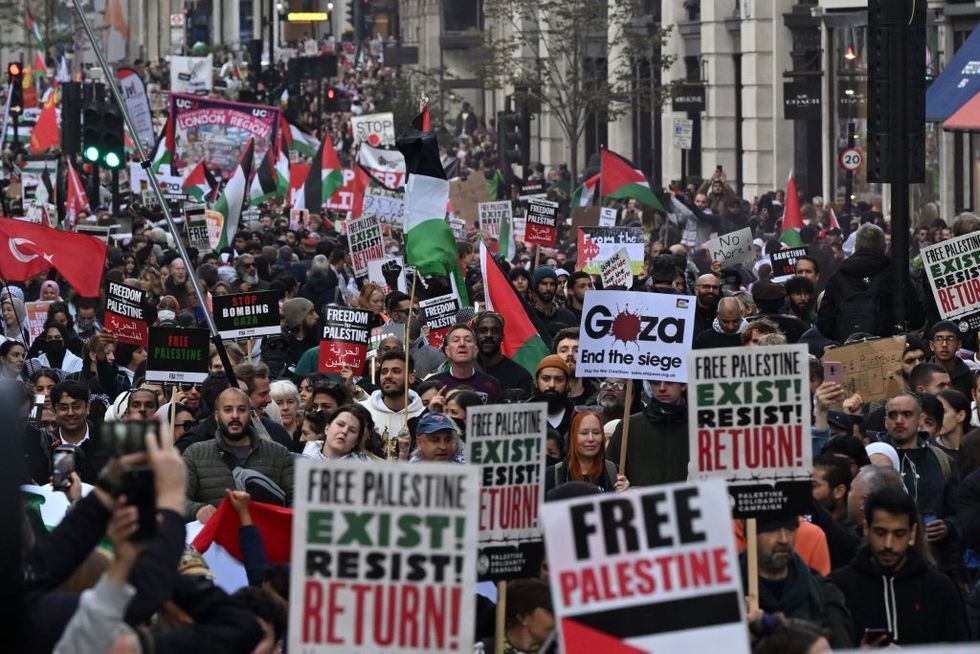 Pro-Palestine protesters | GETTY
Pro-Palestine protesters | GETTY“I noticed how relatively few people are wearing poppies this year.
“On asking, one told me he couldn't find a poppy seller while another said he was nervous being seen in London with one due to the demonstrations'
Tory MP Bob Seely added: “I think millions of people up and down the country will be frankly, dismayed and appalled that a hard left rent-a-mob seem to be intimidating poppy sellers, many of whom are veterans doing their bit and taking a really important and valuable role in reminding us of the importance of Remembrance Sunday and the Remembrance weekend.”
Commuters have noticed that a number of major train stations in the capital either have no poppy sellers or a reduced number.
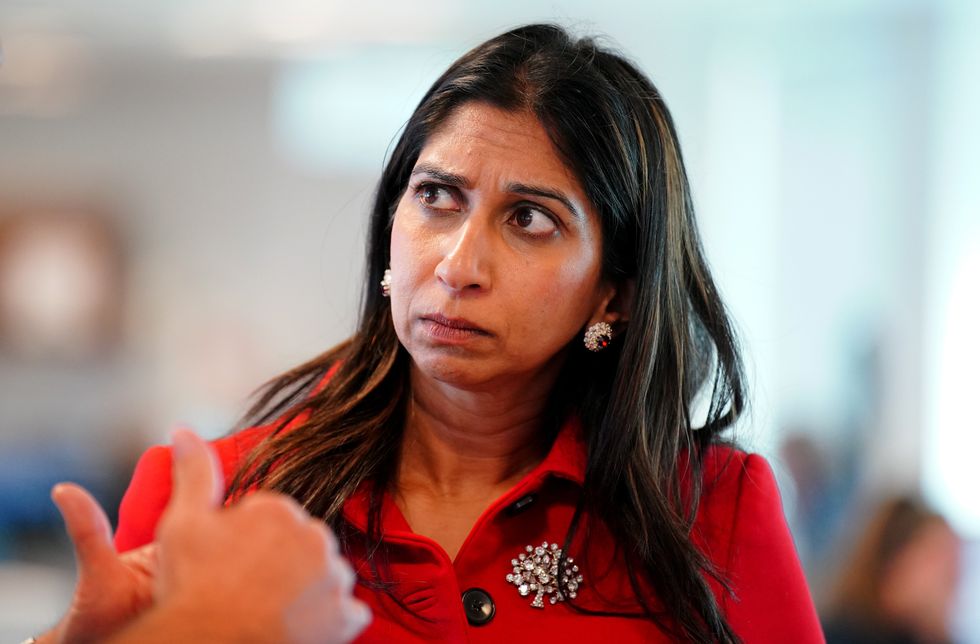 Home Secretary Suella Braverman is coming under fire for her incendiary article | PA
Home Secretary Suella Braverman is coming under fire for her incendiary article | PAThe Royal British Legion adopted the poppy as the emblem to mark Remembrance Day due to its prevalence of the Western Front and Canadian Lieutenant Colonel John McCrae’s poem 'In Flanders Fields'.
There are now growing concerns about tensions on Saturday with pro-Palestine protesters staging yet another set of demonstrations.
The protest will coincide with Armistice Day on November 11 but activists have vowed to steer clear of the Cenotaph and start the demonstration after 11am.
A counter-demonstration is expected to take place at the same time, with football hooligans among those vowing to protect the Cenotaph.
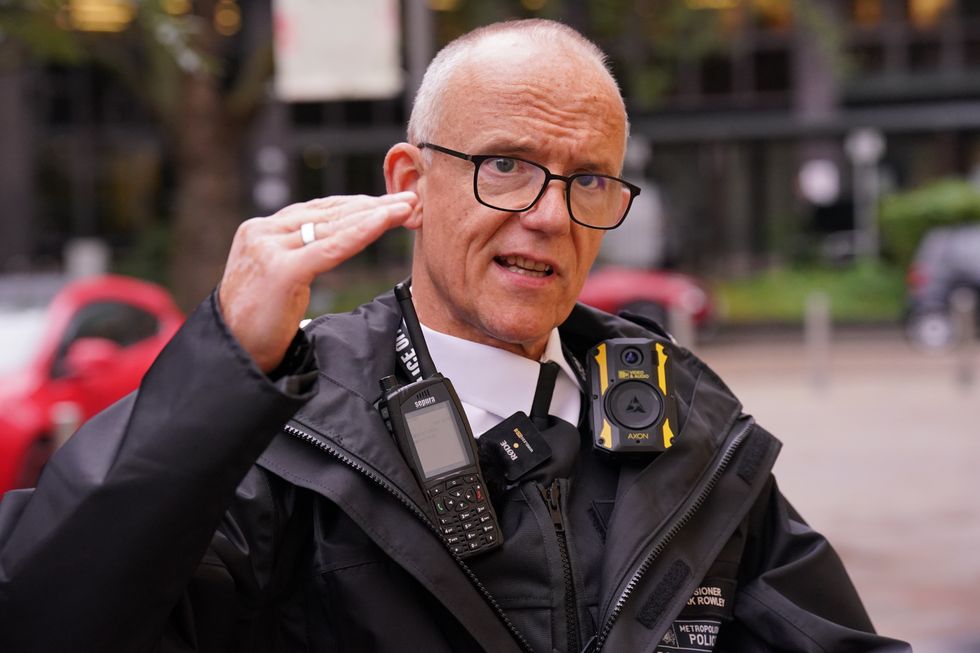 Sir Mark Rowley has said the police will 'ensure that Remembrance and Armistice are not compromised' | PA
Sir Mark Rowley has said the police will 'ensure that Remembrance and Armistice are not compromised' | PARishi Sunak urged pro-Palestine activists against descending on London on Saturday, suggesting there was a “clear and present risk” that war memorials could be “desecrated”.
However, the Prime Minister and Home Secretary Suella Braverman refused to ban the protest.
Metropolitan Police Chief Commissioner Sir Mark Rowley also came under fire for the scheduled demonstration, with Braverman controversially accusing Scotland Yard of “playing favourites”.
Rowley said: “The laws created by Parliament are clear.
“There is no absolute power to ban protest, therefore there will be a protest this weekend.
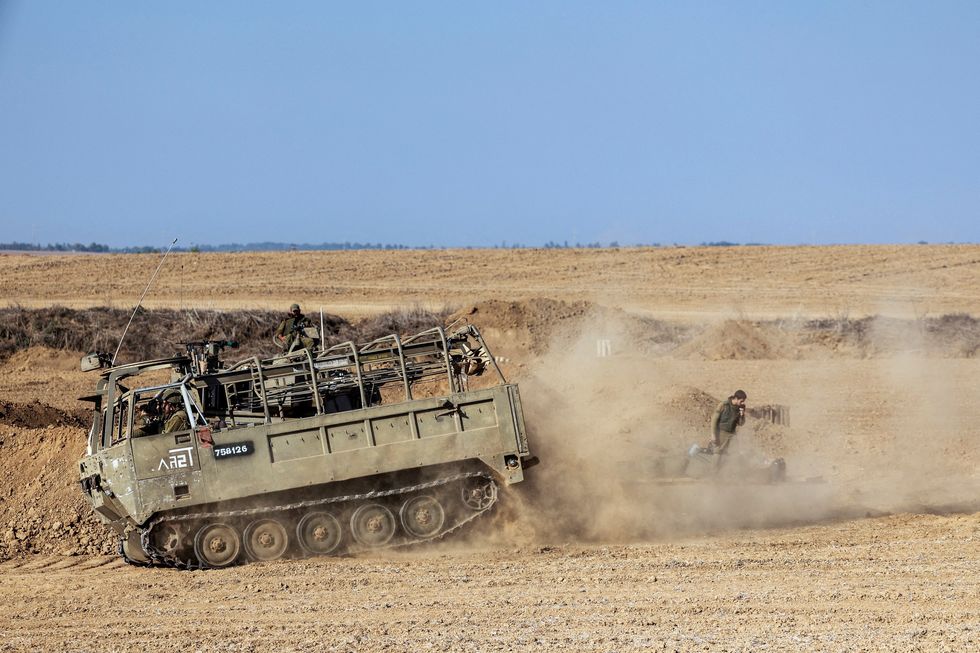 Israeli military vehicles and soldiers from an artillery unit gather near Israel's border | REUTERS
Israeli military vehicles and soldiers from an artillery unit gather near Israel's border | REUTERS“The law provides no mechanism to ban a static gathering of people.
“It contains legislation which allows us to impose conditions to reduce disruption and the risk of violence, and in the most extreme cases when no other tactics can work, for marches or moving protests to be banned.”
However, protests have continued since Hamas killed 1,400 people during its barbaric attack against Israel on October 7.
Previous rallies have seen officers injured with fireworks, protesters holding up extremist imagery and multiple people arrested for antisemitic chanting.
GB News has approached the Royal British Legion for comment.





